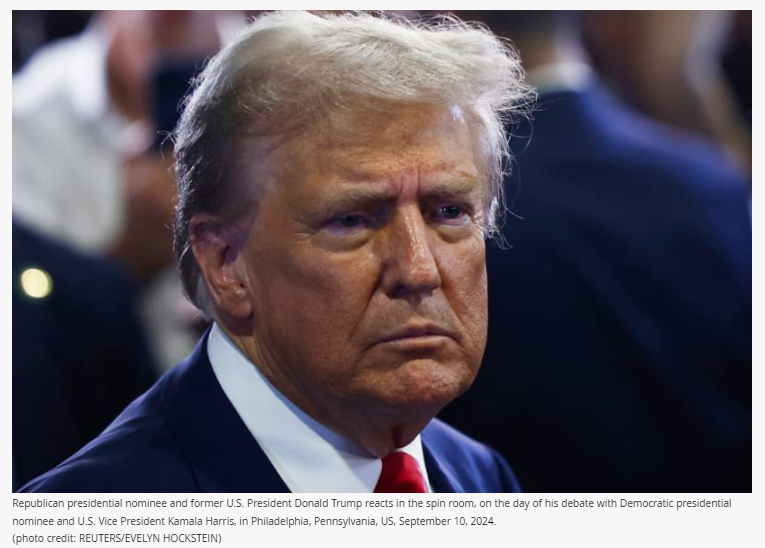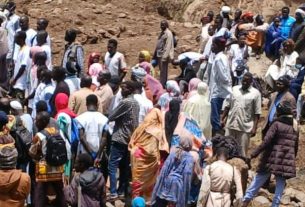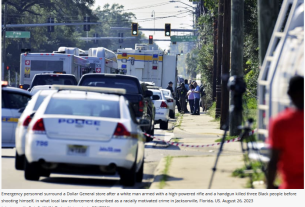Federal authorities have announced charges against three individuals in connection with an alleged plot to assassinate President-elect Donald Trump and several prominent Iranian dissidents. The accused are believed to have been involved in a covert operation linked to the Iranian government, aimed at silencing critics of the Iranian regime and sending a powerful message to those who oppose the nation’s leadership.
According to law enforcement officials, the plot, which was uncovered through a joint investigation by the FBI and other federal agencies, appears to have been part of a broader effort by Tehran to target those who have spoken out against the regime, both in the U.S. and abroad. The plot’s existence has raised serious concerns about the use of state-sponsored assassination attempts on foreign soil and the lengths to which some actors are willing to go to enforce political agendas.
The Alleged Assassination Plot: Targets and Motives
The three individuals, who were arrested following an extensive investigation, were allegedly involved in a sophisticated plot that targeted President-elect Donald Trump, as well as several well-known Iranian dissidents who have lived in exile in the U.S. The individuals charged have been accused of conspiring to carry out assassinations aimed at eliminating high-profile figures who are seen as major threats to the Iranian government.
According to law enforcement, the targets included:
- Donald Trump, who at the time was the President-elect of the United States, and
- Prominent Iranian dissidents and activists, who have long criticized Iran’s regime.
The alleged plot’s timing, during Trump’s presidential transition, is of particular concern, as it suggests that the threat was not only to dissidents but to a major Western political figure, potentially as part of a wider political message.
Details of the Plot: An Iran-Link Unveiled
The charges come after months of investigation, with U.S. law enforcement agencies working to track the individuals involved. Authorities revealed that the plot was traced back to Iranian officials, who may have provided financial support and logistical coordination for the assassination attempts.
Although Iranian officials have not publicly commented on the incident, the charges suggest a clear Iranian state connection—with possible backing from Iran’s Islamic Revolutionary Guard Corps (IRGC), a powerful military organization known for engaging in covert operations and supporting proxy groups.
The trio of suspects reportedly received guidance on how to carry out the planned assassinations, with the intention of destabilizing both Iranian opposition groups abroad and U.S. political figures who have been particularly critical of Iran. The plot was carefully orchestrated, though it remains unclear how far along it was when the authorities intervened.
Investigating the Iranian Government’s Role
While the U.S. government has not officially pointed to specific high-ranking Iranian officials, the nature of the plot raises alarm about the potential involvement of elements within Iran’s government and military apparatus. The Islamic Republic has long faced opposition from exile groups, human rights activists, and political dissidents—many of whom live in the U.S. or Europe. In recent years, there have been growing concerns about Iran’s increasing willingness to target its adversaries abroad.
Several high-profile Iranian dissidents have been murdered or targeted in attempts on their lives in various parts of the world, suggesting that Tehran is willing to use assassinations as a tool of political warfare. This particular plot, targeting both a high-profile Western political figure and Iranian exiles, reflects the escalating tensions between the regime and its adversaries in the West.
The Role of U.S. Law Enforcement
The FBI and other federal agencies played a critical role in uncovering the alleged plot. Authorities are praising the work of intelligence and counterintelligence operatives who successfully identified the threat and managed to disrupt the operation before it could be carried out. U.S. law enforcement agencies have made it clear that they will not tolerate any foreign state-sponsored assassination attempts on American soil or against American leaders.
Law enforcement officials have not disclosed specific details about how the plot was uncovered or the individuals’ movements, citing the ongoing investigation. However, they have stressed the importance of international cooperation in combatting state-sponsored terrorism and assassination plots.
In addition to the federal investigation, authorities have urged all individuals involved in political activism, especially those with ties to hostile regimes, to remain vigilant in light of the increasing threat of politically motivated attacks from foreign actors.
Reactions from Political Figures
The alleged assassination plot has drawn strong reactions from across the political spectrum in the U.S. Republican lawmakers have condemned the Iranian regime’s apparent actions, calling it an act of state-sponsored terrorism. Senator Lindsey Graham described the situation as an “outrage,” adding that the U.S. must take swift action to hold Iran accountable for any attempt to target American citizens or public officials.
On the other hand, Democratic leaders have expressed deep concern over the implications of such a plot, emphasizing the need for a coordinated response with allies and an unwavering commitment to defending free speech and democratic values worldwide. Some lawmakers are also calling for greater international sanctions on Iran and further diplomatic measures to deter similar attacks in the future.
International Implications
The allegations against Iran could have significant implications for U.S.-Iran relations. The plot underscores the ongoing volatility in the Middle East and the risks posed by state-sponsored terrorism and political violence. While Iran has denied any direct involvement in recent high-profile assassination attempts abroad, the new charges could heighten tensions between the U.S. and the Islamic Republic, particularly as Iran has continued to resist international pressure regarding its nuclear ambitions and its support for militant groups.
The U.S. and its allies may now take a harder line in their diplomatic relations with Iran, particularly in regard to security and human rights. Additionally, the plot could serve as a reminder of the vulnerabilities that come with being a political dissident or outspoken critic of an authoritarian regime, especially when such regimes have global reach and resources.
Conclusion
The arrest of three individuals in connection with an alleged Iran-linked plot to assassinate President-elect Donald Trump and several Iranian dissidents is a chilling reminder of the lengths to which some regimes will go to silence their critics and assert power over their enemies. The case also underscores the evolving nature of international state-sponsored threats and the importance of vigilance and cooperation among intelligence agencies globally.
As the investigation unfolds, it will be crucial for U.S. authorities to determine the full extent of Iran’s involvement, and whether this was part of a broader, coordinated campaign to intimidate or eliminate opposition voices abroad. The charges against the three suspects mark just the beginning of what could be a prolonged and complex geopolitical conflict, with significant implications for U.S. foreign policy and international security.
References:
- ABC News – Three Charged in Alleged Iran-Linked Plot to Assassinate Donald Trump and Iranian Dissidents
Source: ABC News - Reuters – U.S. Authorities Uncover Plot to Target Iranian Dissidents and Trump
Source: Reuters - The Washington Post – Iran’s Growing Role in Targeting Political Opponents Abroad
Source: Washington Post - BBC News – Three Arrested in Alleged Iran-Linked Assassination Plot
Source: BBC


